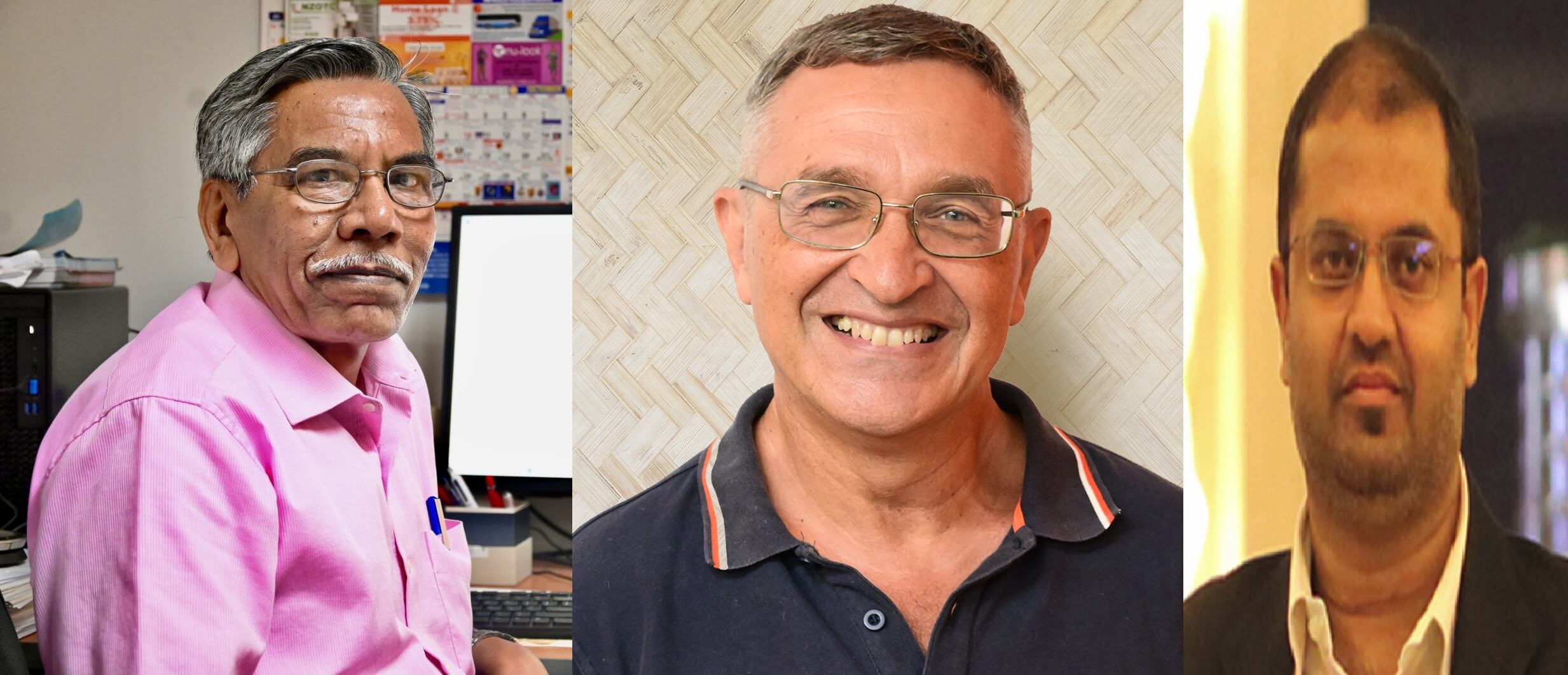Related News

Stanford University has named three staff of The University of the South Pacific (USP) to be among the World’s Top 2% most cited Scientists; the latest list was published in October 2023 by Prof. Ioannidis of Stanford University based on the Scopus data.
The three USP staff are Professor Maurizio Cirrincione, (former) Head of the School of Information Technology, Engineering, Mathematics and Physics (STEMP), Professor Surendra Prasad, the current Head of the School of Agriculture, Geography, Environment, Ocean and Natural Sciences (SAGEONS) and Professor Ahmed Rafiuddin, the Deputy Head of School, Research, Innovation and Graduate Affairs of STEMP.
According to the recently updated author databases of standardised citation indicators, this is the fourth consecutive year Professor Cirrincione and Professor Rafiuddin are named in the world’s top 2% cited researchers list.
Professor Ahmed, whose h-index is now 26 on Scopus, said that despite the limited resources available for engineering research at USP, it is satisfying that ‘almost all the papers written by me and my USP students’ are being cited by authors from all over the globe.
Prof. Ahmed, who has now published papers on almost all sources of renewable energy, hopes that his work will have some contribution to the energy transition from fossil fuel sources to renewable sources and will lead to sustainable development.
The same sentiments were echoed by Professor Cirrincione, who added that being part of “this prestigious selection is a significant recognition for the university and its dedication in the field of science.”
Additionally, Professor Prasad, who joined USP on March 01, 2000, started as a lecturer and is now the SAGEONS Head of School, stressed that while being named in the top 2% is a great recognition of his work, he is even proud to be able to put USP on the global map of top researchers and scientists.
“This is an amazing achievement for the three people named on the list and for USP. Such recognition will empower academics and researchers to work towards getting publication and aspire to become the best in their field.”
“I always told students pursuing even postgraduate studies, research, or even higher education that writing a thesis is one thing and getting a publication is another. A thesis would lie on a shelf in a library, but being published in international journals allows your work to be recognised globally and enables fellow scientists and researchers to refer to your work and your field of study.”
“USP Vice-Chancellor and President Professor Pal Ahluwalia, while welcoming this recognition, said that “I am immensely proud of this accomplishment. This doesn’t only speak volumes about the hard work and dedication that our staff have put in, but it also raises the research profile of the entire Pacific region.”
“We have been working closely with several partners to help uplift the funding gap that currently exists in the region in terms of peer review research culture and to bolster the research infrastructure needed”.
“Leaders of the Pacific have given USP the mandate of harnessing Pacific expertise and experience to scale up our responses to regional needs, especially in areas of research, innovation and teaching where USP is weaving indigenous and local knowledge with Western science to create innovative solutions to address climate and oceans related issues”, Professor Ahluwalia added.
The University of the South Pacific is redefining itself in that it is not only an academic institution but one that thrives in research as well.